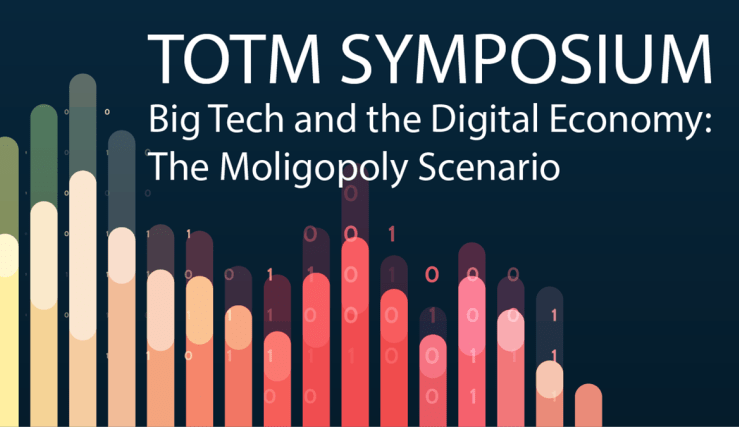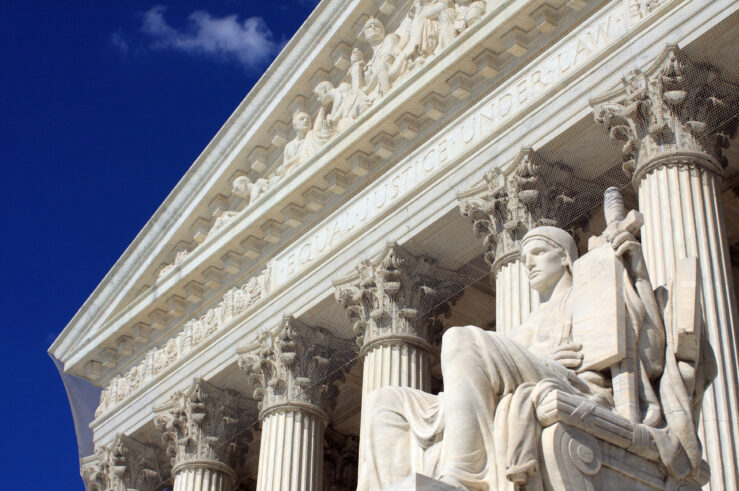Showing archive for: “Advertising”
Using the Hypothetical Monopolist Test to Define the Relevant Market for Ad Tech
Policymakers’ recent focus on how Big Tech should be treated under antitrust law has been accompanied by claims that companies like Facebook and Google hold dominant positions in various “markets.” Notwithstanding the tendency to conflate whether a firm is large with whether it hold a dominant position, we must first answer the question most of ... Using the Hypothetical Monopolist Test to Define the Relevant Market for Ad Tech
Online Display Advertising: What’s the relevant market?
Digital advertising is the economic backbone of the Internet. It allows websites and apps to monetize their userbase without having to charge them fees, while the emergence of targeted ads allows this to be accomplished affordably and with less wasted time wasted. This advertising is facilitated by intermediaries using the “adtech stack,” through which advertisers ... Online Display Advertising: What’s the relevant market?
A Coasean Analysis of Offensive Speech
Words can wound. They can humiliate, anger, insult. University students—or, at least, a vociferous minority of them—are keen to prevent this injury by suppressing offensive speech. To ensure campuses are safe places, they militate for the cancellation of talks by speakers with opinions they find offensive, often successfully. And they campaign to get offensive professors ... A Coasean Analysis of Offensive Speech
How Changing Section 230 Could Disrupt Insurance Markets
In recent years, a diverse cross-section of advocates and politicians have leveled criticisms at Section 230 of the Communications Decency Act and its grant of legal immunity to interactive computer services. Proposed legislative changes to the law have been put forward by both Republicans and Democrats. It remains unclear whether Congress (or the courts) will ... How Changing Section 230 Could Disrupt Insurance Markets
Congress Should Not Grant the FTC Untrammeled Authority to Obtain Monetary Relief
The U.S. House this week passed H.R. 2668, the Consumer Protection and Recovery Act (CPRA), which authorizes the Federal Trade Commission (FTC) to seek monetary relief in federal courts for injunctions brought under Section 13(b) of the Federal Trade Commission Act. Potential relief under the CPRA is comprehensive. It includes “restitution for losses, rescission or ... Congress Should Not Grant the FTC Untrammeled Authority to Obtain Monetary Relief
Antitrust Statutorification
A lot of water has gone under the bridge since my book was published last year. To close this symposium, I thought I would discuss the new phase of antirust statutorification taking place before our eyes. In the United States, Congress is working on five antitrust bills that propose to subject platforms to stringent obligations, ... Antitrust Statutorification
Breaking Down House Democrats’ Forthcoming Competition Bills
Democratic leadership of the House Judiciary Committee have leaked the approach they plan to take to revise U.S. antitrust law and enforcement, with a particular focus on digital platforms. Broadly speaking, the bills would: raise fees for larger mergers and increase appropriations to the FTC and DOJ; require data portability and interoperability; declare that large ... Breaking Down House Democrats’ Forthcoming Competition Bills
European Commission Objection to App Store Rules Lack Empirical Support
The European Commission recently issued a formal Statement of Objections (SO) in which it charges Apple with antitrust breach. In a nutshell, the commission argues that Apple prevents app developers—in this case, Spotify—from using alternative in-app purchase systems (IAPs) other than Apple’s own, or steering them towards other, cheaper payment methods on another site. This, ... European Commission Objection to App Store Rules Lack Empirical Support
An L&E Defense of the First Amendment’s Protection of Private Ordering
In his recent concurrence in Biden v. Knight, Justice Clarence Thomas sketched a roadmap for how to regulate social-media platforms. The animating factor for Thomas, much like for other conservatives, appears to be a sense that Big Tech has exhibited anti-conservative bias in its moderation decisions, most prominently by excluding former President Donald Trump from ... An L&E Defense of the First Amendment’s Protection of Private Ordering
The Future of FTC Equitable Monetary Relief after AMG Capital Management
The U.S. Supreme Court’s just-published unanimous decision in AMG Capital Management LLC v. FTC—holding that Section 13(b) of the Federal Trade Commission Act does not authorize the commission to obtain court-ordered equitable monetary relief (such as restitution or disgorgement)—is not surprising. Moreover, by dissipating the cloud of litigation uncertainty that has surrounded the FTC’s recent ... The Future of FTC Equitable Monetary Relief after AMG Capital Management
The FTC Did Not ‘Fumble the Future’ in Its Google Search Investigation
Politico has released a cache of confidential Federal Trade Commission (FTC) documents in connection with a series of articles on the commission’s antitrust probe into Google Search a decade ago. The headline of the first piece in the series argues the FTC “fumbled the future” by failing to follow through on staff recommendations to pursue ... The FTC Did Not ‘Fumble the Future’ in Its Google Search Investigation
Congress Should Not Legalize a News Media Cartel
Amazingly enough, at a time when legislative proposals for new antitrust restrictions are rapidly multiplying—see the Competition and Antitrust Law Enforcement Reform Act (CALERA), for example—Congress simultaneously is seriously considering granting antitrust immunity to a price-fixing cartel among members of the newsmedia. This would thereby authorize what the late Justice Antonin Scalia termed “the supreme ... Congress Should Not Legalize a News Media Cartel













